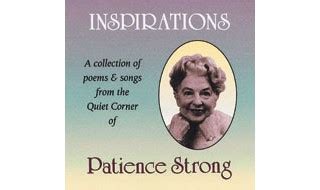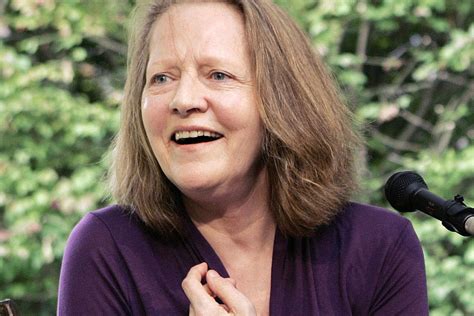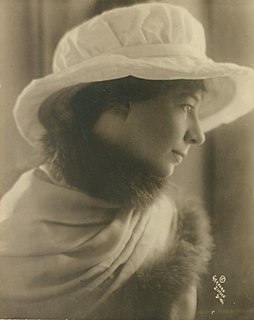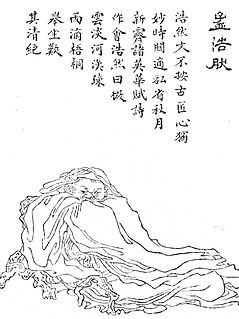A Quote by Patrick Carman
In the morning light, I remembered how much I loved the sound of wind through the trees. I laid back and closed my eyes, and I was comforted by the sound of a million tiny leaves dancing on a summer morning.
Related Quotes
We never look deeply into the quality of a tree; we never really touch it, feel its solidity, its rough bark, and hear the sound that is part of the tree. Not the sound of wind through the leaves, not the breeze of a morning that flutters the leaves, but its own sound, the sound of the trunk and the silent sound of the roots.
And there, row upon row, with the soft gleam of flowers opened at morning, with the light of this June sun glowing through a faint skin of dust, would stand the dandelion wine. Peer through it at the wintry day - the snow melted to grass, the trees were reinhabitated with bird, leaf, and blossoms like a continent of butterflies breathing on the wind. And peering through, color sky from iron to blue. Hold summer in your hand, pour summer in a glass, a tiny glass of course, the smallest tingling sip for children; change the season in your veins by raising glass to lip and tilting summer in
By now, the morning sun was just over the horizon and it came at me like a sidearm pitch between the houses of my old neighborhood. I shielded my eyes. This being early October, there were already piles of leaves pushed against the curb—more leaves than I remembered from my autumns here—andless open space in the sky. I think what you notice most when you haven’t been home in a while is how much the trees have grown around your memories.
The trees change their voices in autumn as well as their shapes. No longer do they whisper to one another in muffled tones as they did in summer; they talk in a different leaf-language now. The wind moves through the boughs like fingers drawn across the strings of a harp filling the air with the harsh dry sound of sapless leaves. It is the main theme of the autumn music, this murmuring counterpoint of dead leaves.
One must have a mind of winter to regard the frost and the boughs of the pine trees, crusted with snow, And have been cold a long time, to behold the junipers, shagged with ice, the spruces, rough in the distant glitter of the January sun, and not to think of any misery in the sound of the wind, in the sound of a few leaves, which is the sound of the land, full of the same wind, blowing in the same bare place for the listener, who listens in the snow, and, nothing herself, beholds nothing that is not there, and the nothing that is.
Think of the sound you make when you let go after holding your breath for a very, very long time. Think of the gladdest sound you know: the sound of dawn on the first day of spring break, the sound of a bottle of Coke opening, the sound of a crowd cheering in your ears because you're coming down to the last part of a race--and you're ahead. Think of the sound of water over stones in a cold stream, and the sound of wind through green trees on a late May afternoon in Central Park. Think of the sound of a bus coming into the station carrying someone you love. Then put all those together.
The trees bathed their great heads in the waves of the morning, while their roots were planted deep in gloom; save where on the borders of the sunshine broke against their stems, or swept in long streams through their avenues, washing with brighter hue all the leaves over which it flowed; revealing the rich brown of the dacayed leaves and fallen pine-cones, and the delicate greens of the long grasses and tiny forests of moss that covered the channel over which it passed in the motionless rivers of light.
If I should see your eyes again, I know how far their look would go -- Back to a morning in the park With sapphire shadows on the snow. Or back to oak trees in the spring When you unloosed my hair and kissed The head that lay against your knees In the leaf shadow's amethyst. And still another shining place We would remember -- how the dun Wild mountain held us on its crest One diamond morning white with sun. But I will turn my eyes from you As women turn to put away The jewels they have worn at night And cannot wear in sober day.
Needle was Robb and Bran and Rickon, her mother and her father, even Sansa. Needle was Winterfell's grey walls, and the laughter of its people. Needle was the summer snows, Old Nan's stories, the heart tree with its red leaves and scary face, the warm earthy smell of the glass gardens, the sound of the north wind rattling the shutters of her room. Needle was Jon Snow's smile. He used to mess my hair and call me "little sister," she remembered, and suddenly there were tears in her eyes.
The first book by an African American I read was Carl T. Rowan's memoir, Go South to Sorrow. I found it on the bookshelf at the back of my fifth-grade classroom, an adult book. I can remember the quality of the morning on which I read. It was a sunlit morning in January, a Saturday morning, cold, high, empty. I sat in a rectangle of sunlight, near the grate of the floor heater in the yellow bedroom. And as I read, I became aware of warmth and comfort and optimism. I was made aware of my comfort by the knowledge that others were not, are not, comforted. Carl Rowan at my age was not comforted.




































